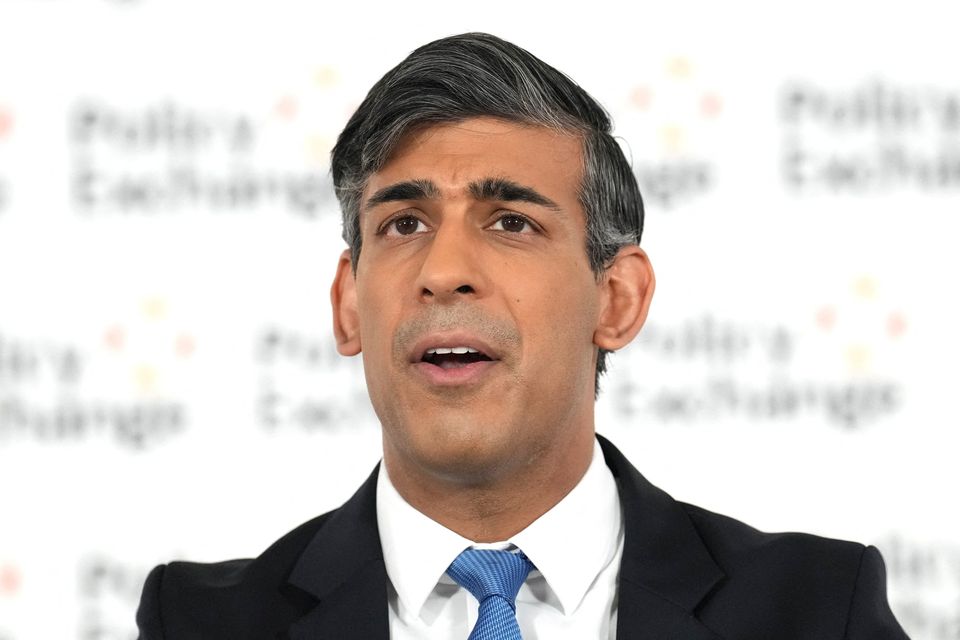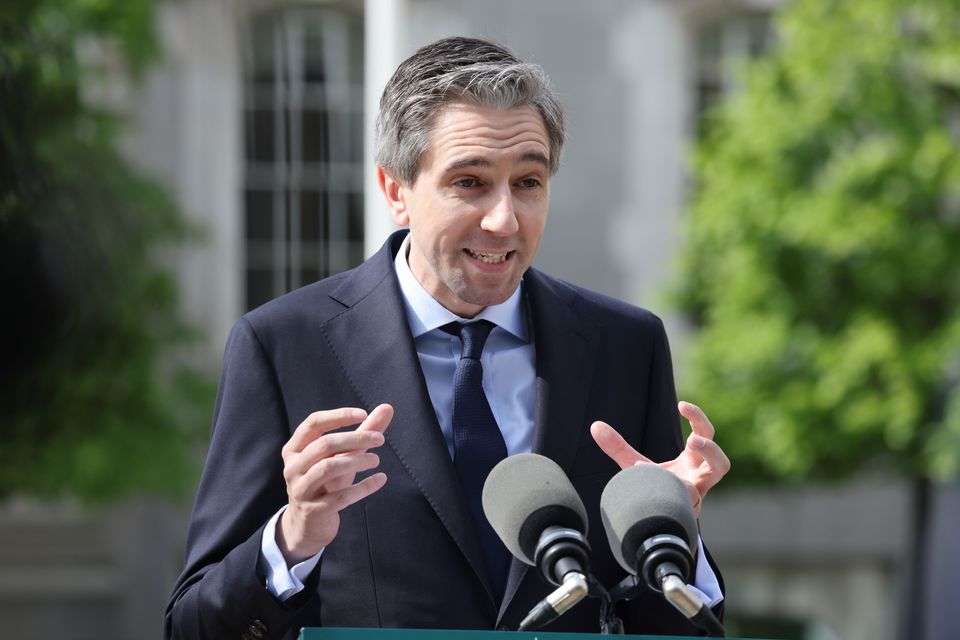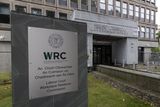Thousands of Ukrainian refugees to have their welfare cut to same rate as new arrivals under new plans
Provisions of Illegal Migration Act should be disapplied in NI, judge rules
All Ukrainian refugees, regardless of when they came to Ireland, will be given three months’ notice before their social welfare payments are cut.
The Government will today sign off on plans to make social welfare rates for all Ukrainians the same, €38.80 per adult and €29.80 for a child while refugees are in a designated accommodation centre.
There are thousands of Ukrainian refugees currently receiving Jobseeker’s Allowance of €232 per week and this will be reduced to the same rates as new arrivals in 12 weeks.
The 12 week lead in time will allow the Minister for Children Roderic O’Gorman and the Minister for Social Protection Heather Humphreys to give notice to the people affected.
Both ministers will review entitlements of International Protection applicants and report back to government within six weeks.
The new plans to get a handle on migration will be brought to cabinet by the Taoiseach, Minister O’Gorman, Minister Humphrey’s and Minister Helen McEntee.
There will also be more targeted workplace inspections in sectors or firms where there is an increased risk or reports of non-compliance with the range of employment and workplace requirements and permit regulations under plans from Enterprise Minister Peter Burke.
The list of safe countries is set to be expanded and there will also be a review of visa-free travel for all States from which there are significant numbers of international protection applicants.
IPO offices will also have their staffing levels increased and the Government has already promised to put in faster processing of asylum applications, as well as the standing up of more safe and sanitary accommodation facilities on state lands.
Meanwhile, migrants arriving in the North to escape the implications of the UK's Rwanda bill may mean more asylum-seekers come into the State, a TD has warned.
The UK government is expected to appeal a ruling by a judge that parts of the UK’s Rwanda law should not apply in Northern Ireland.
The Illegal Migration Act gives powers to the British government to detain and remove asylum seekers it deems to have arrived illegally in the UK and central to the new laws is the scheme to send asylum seekers to Rwanda.
Read more
A government spokesperson said the judgment will now be studied.
“The government notes the court ruling in Belfast this afternoon,” they said.
“We will study the judgment carefully, including with regard to the findings on compatibility with the European Convention on Human Rights which is, of course, central to the Good Friday Agreement.”
The Government will still press on with its plans to pass laws to designate the UK a safe country, it is understood.
‘There is nothing to stop Ireland designating part of the UK, namely Northern Ireland, as a safe third country’
Immigration solicitor Sinéad Marmion told RTÉ that the judgment was "hugely significant" as it suggested if asylum seekers impacted by the act made their way to the North from the UK, they could not be sent to Rwanda.
Her views were also echoed by Fianna Fáil justice spokesperson TD Jim O’Callaghan, who said asylum seekers in the North can be “treated no less preferably” than those in the State.
He said this may mean that asylum seekers don’t have to go to the State to avoid deportation to Rwanda, but this may mean that more migrants go to Northern Ireland from the UK.
“The arrival of more asylum seekers on the island of Ireland will inevitably mean more will apply for international protection in the Republic,” he said.
Rishi Sunak's government wants to send illegal immigrants to Rwanda. Photo: Reuters
“The judgment today underlines the importance of the Oireachtas promptly enacting legislation to make the UK a safe third country again. Even if there were doubts about designating all of the UK as a safe third country because of the Rwandan policy, there is nothing to stop Ireland designating part of the UK, namely Northern Ireland, as a safe third country to where asylum seekers could be returned.”
He said the ruling also shows that supports for asylum seekers in Ireland must be “identical” to the ones in the North.
“Otherwise all applicants will apply for international protection in the more generous location,” he said.
Aontú TD Peadar Toibin also said that more people will "cross the Border and seek asylum in the south".
‘To ignore what the courts have said would not be merely a case of sleepwalking into the creation of immigration border in the Irish Sea but rather embarking on such a path with eyes wide open’
"The Irish Government must now engage with the British government to ascertain how that will be managed. The loud hailer diplomacy that happened before the English local elections will not cut it," he said.
The DUPs Gavin Robinson warned the UK government that it must not facilitate the creation of an "immigration border" in the Irish Sea, with different rules applying in Northern Ireland to the rest of the UK.
Mr Robinson insisted that his party had repeatedly warned the UK government that its immigrations laws were incompatible with post-Brexit arrangements contained in the Northern Ireland Protocol/Windsor Framework.
"Whilst today's judgment does not come as a surprise, it does blow the government's irrational claims that the Rwanda scheme could extend equally to Northern Ireland completely out of the water," he said.
Taoiseach Simon Harris wants a conversation on the uniformity of supports offered. Photo: Eamonn Farrell
"For ministers to ignore what the courts have said would not be merely a case of sleepwalking into the creation of immigration border in the Irish Sea but rather embarking on such a path with eyes wide open.
"It is imperative that immigration policy applies equally across every part of the United Kingdom.”
Delivering his court judgment yesterday, Mr Justice Humphreys ruled that a several sections of the Illegal Migration Act would lead to a diminution of the rights of asylum seekers residing in Northern Ireland.
The Government changed its offering for new arrivals in March
Join the Irish Independent WhatsApp channel
Stay up to date with all the latest news
















